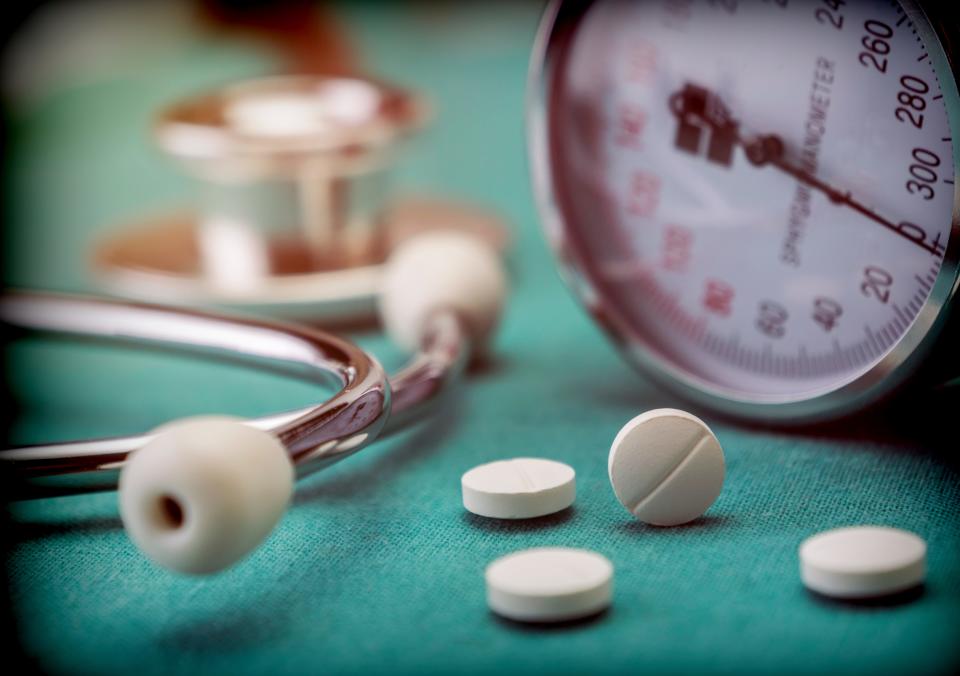Yes, urgent care is convenient. But seeing your doctor may save your life.
When Americans feel sick, they often face a choice: Try to make a doctor's appointment ? and potentially wait days or weeks ? or head to the closest urgent care or retail clinic to see a provider right away.
For many, it's an easy decision. Half of Americans have visited an urgent care center or retail clinic in the past five years, according to a new survey by the physician network MDVIP and Ipsos.
Walk-in clinics might seem like a godsend at a time of growing frustration with the health care system. In many ways, they are. But they also can pose a threat to Americans' health.
The problem isn't so-called convenience care itself, but rather that patients use it as a replacement for primary care physicians, rather than a supplement to them.
As an internist, I've seen the dangers of overreliance on convenience care firsthand.
One 55-year-old new patient had high blood pressure and elevated cholesterol as well as prediabetes, but no prior primary care physician. He had visited an urgent care center complaining of ear and neck pain, but after a hasty consultation with a doctor, left without a definitive diagnosis ? just a prescription for antibiotics and ear drops. His symptoms persisted.
After a second visit to urgent care, he was referred to an ear, nose and throat specialist, who ran several tests, all of which were negative.
Primary care visit may have saved my patient's life
Finally, he came to see me. Careful questioning revealed that his pain got worse with physical exertion and better with rest. Considering his multiple cardiac risk factors, I suspected blocked arteries ? so I immediately sent him for a test to see if he had plaque in his arteries. He had greater than 90% blockages of three of his coronary arteries, including the "widowmaker," and underwent triple vessel coronary artery bypass surgery the next day.
Despite two visits to urgent care and one to a specialist, this patient was unaware that he might be days away from a fatal cardiac event. His primary care visit may have saved his life.
Do you know heart attack signs? Heart disease is misdiagnosed in women. And it's killing us.
Or consider the sad story of a 64-year-old gentleman I knew. He had smoked two packs a day for three decades earlier in life, but had quit more than 15 years ago. One day, he developed shortness of breath and a cough, but no other symptoms of a respiratory infection. He went to urgent care, which examined him and sent him home with a "Z-Pak" of antibiotics.
When he failed to improve, he returned to urgent care a second time. They gave him another Z-Pak. Then he went a third time after his breathing worsened. Only then did they refer him for a chest CT scan, which revealed stage 4 inoperable lung cancer.
This poor man might have had his lung cancer diagnosed at a surgically curable stage if he had seen a primary care doctor regularly and received the annual low-dose chest CT scan recommended for smokers and ex-smokers in his age group.

The overreliance on antibiotics as a substitute for a deeper probe of patients' health isn't an anomaly. Urgent care centers are nearly three times as likely to prescribe antibiotics in situations where they aren't recommended, compared with office-based clinics, according to a Pew study published in the Journal of the American Medical Association Internal Medicine.
Primary care doctors track patients' health over time
Walk-in clinics are a practical option for spot treating a sprained ankle or getting a flu shot. But urgent care centers and other walk-in clinics aren't designed to track a patient's health over time or help someone manage a chronic condition like diabetes, high blood pressure or anxiety.
My daughter has a rare disease. We shouldn't have had to leave the US to save her life.
Research underscores the inherent problem with convenience care. In a study published in the Journal of Primary Care & Community Health, researchers from the Mayo Clinic found that "continuity of care was lower for patients who used retail clinics than for patients who did not use retail clinics," which is worrisome – because "continuity of care is associated with many positive outcomes, including improved delivery of preventive services, decreased hospitalizations, lower health care costs and improved chronic disease management."
Dr. Ateev Mehrotra, a professor at Harvard Medical School, has reached a similar conclusion.
Consider the value that a long-standing relationship with a primary care doctor can provide. One patient came to me during a flare-up of her diabetes. Having seen her for years, I remembered that her flare-ups often occurred during periods when her daughter's mental health had deteriorated. I probed, and realized that the associated stress was the cause. We worked together on treating her anxiety and identifying coping skills.
Opinion alerts: Get columns from your favorite columnists + expert analysis on top issues, delivered straight to your device through the USA TODAY app. Don't have the app? Download it for free from your app store.
I was able to make these critical connections only because I knew her history well. Urgent care clinicians, no matter how well-intentioned or individually skilled, wouldn't have the level of prior knowledge necessary to connect those dots.
Especially for younger adults, relying exclusively on urgent care can feel like a harmless shortcut, compared with the troubles of trying to get into a doctor's office. But there are no shortcuts to good health.

Maintaining a relationship with a primary care doctor and keeping up on routine care ? from annual wellness exams that check blood pressure, to diagnostic screenings that identify body composition, to blood work that includes cholesterol, inflammatory markers, kidney and liver function ? might not always seem convenient.
When it comes to protecting your health against serious illness, however, there is simply no substitute.
Dr. Andrea Klemes is chief medical officer for MDVIP, a national network of more than 1,100 primary care physicians.
You can read diverse opinions from our Board of Contributors and other writers on the Opinion front page, on Twitter @usatodayopinion and in our daily Opinion newsletter.
This article originally appeared on USA TODAY: Should I go to urgent care? Here's when to see your doctor instead